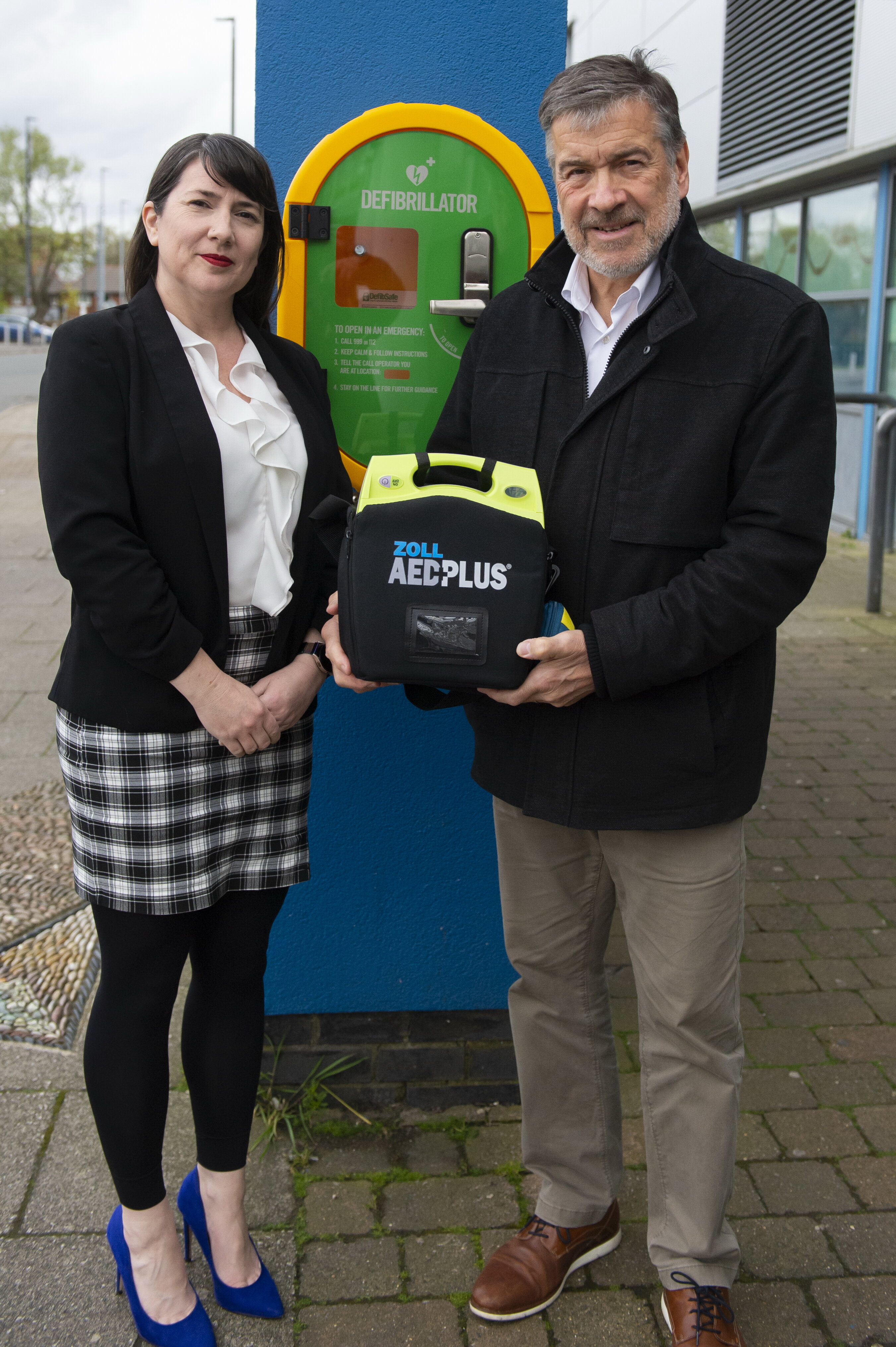
The average distance to the nearest defibrillator has more than halved in Wythenshawe, thanks to a new scheme from the British Heart Foundation (BHF), Oliver Cookson Foundation, Resuscitation Council UK and St John Ambulance.
Before last year, the number of defibrillators registered on the national defibrillator network in Wythenshawe was inadequate for its population of 97,635 (2021 Census).
The BHF estimates that the average return distance to the nearest defibrillator used to be 1,850 metres (1.15 miles).
That changed when the Heartsafe Communities scheme launched in May 2023. The aim was to improve access to defibrillators and CPR training and ultimately save more lives from cardiac arrest.
A report published today by the four charities finds that the average distance to the nearest defibrillator in Wythenshawe is now 858 metres.
Reducing the average distance to a defibrillator is vital as every second counts in a cardiac arrest. Early CPR and defibrillation can more than double the chances of survival, but for every minute someone goes without help, the survival rate drops by up to 10 per cent.
The charities hope the project can provide a model for how communities across the UK can make it easier to get CPR training and access a defibrillator in case of an emergency.
Wythenshawe was chosen as, like many other urban areas in the UK, it has a high density of housing, a relatively older population, and areas of higher deprivation. These factors can contribute to health inequalities and an increased risk of cardiac arrest.
Practical steps
To improve access to defibrillators in Wythenshawe, the charities encouraged registration of devices already in the community onto The Circuit – a national map of defibrillators – which makes it easier for ambulances to find them in an emergency.
The charities also installed more publicly accessible defibrillators in residential areas, as 80 per cent of out-of-hospital cardiac arrests happen at home.
Defibrillator owners were encouraged to move devices to the outside of buildings, and where possible, put them into unlocked cabinets.
The Oliver Cookson Foundation has also held CPR training sessions in the community to boost knowledge of the lifesaving skill. The BHF’s RevivR and Resuscitation Council’s Lifesaver CPR free online training tools were also promoted at the sessions, so that more Wythenshawe residents can learn lifesaving skills at home.
School action
Baguley Hall Primary School in Wythenshawe has taken part in the project, moving its defibrillator outside so the device is available to the public at all times.
School business manager Anne-Marie Dorsey said: “We just didn't think it was possible to move our defibrillator outside. The difficulty was that there are railings around the school, and no electricity supply to the gates or railings. We didn't have budget to install an electric supply to the gates.
“But the BHF told us that the defibrillator could be put on a lamp post.
“We’re in the middle of a housing estate, so there is every chance that someone in the community might need it. I would say to other schools, just be open to the idea. Now this one will be available for the community to help keep them safe.”
BHR director of innovation in health programmes Judy O’Sullivan said: “Every community in the UK deserves to be well prepared in the ultimate medical emergency by having easy access to defibrillators – this can be the difference between life and death.
“This pilot project in Wythenshawe has shown how clear and simple steps can make a real difference to accessing lifesaving defibrillators in a community.
“Our Heartsafe Communities report is a guide for how every community in the UK can give someone has the best chance of survival from an out-of-hospital cardiac arrest.”
Oliver Cookson Foundation chief executive Emily Harrison said: “Providing access to free first aid training in communities is essential for people to know how to save a life. Cookson First Aid reached out to local schools, businesses and community organisations who all responded to the challenge to make Wythenshawe a Heartsafe Community. Each of them helped to make this project a success.
“We’re proud to have been a part of this research, and of everyone in Wythenshawe who has learned to be a life saver. Oliver Cookson Foundation is committed to funding free first aid training to support the roll out of the Heartsafe Community guidance across the UK.”
The full Heartsafe Communities report can be found on the BHF website at CPR training resources - BHF.
To try the BHF’s online CPR tool RevivR, go to bhf.org.uk/revivr. To try Resuscitation Council’s Lifesaver training, go to https://www.lifesaver.org.uk/.
Back